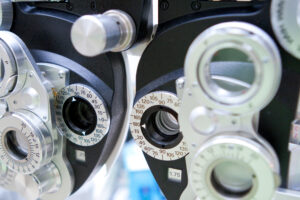An astounding number of Americans have delayed or avoided medical care due to concerns about COVID-19 – creating potentially dangerous consequences for those in need of treatment. In a survey conducted in Morbidity and Mortality Weekly Report, 40.9% of U.S. adults delayed or avoided medical care based on a survey of U.S. adults between June 24 and June 30. Of that number, 31.5% of adults avoided routine care and perhaps more surprisingly, 12% avoided urgent or emergency care due to concerns about COVID-19!
According to the study, non-Hispanic, Black adults and Hispanic or Latino adults were significantly more likely than white adults to avoid urgent or emergency care. There have been numerous reports of patients dying at home from heart attacks and other emergent ailments rather than going to the emergency room due to the fear of contracting the Coronavirus. Due to conflicting media reports (some portraying hospitals and emergency rooms as M.A.S.H. units of COVID-19 patients in certain hot spots in the country), it is understandable that this could create a dilemma for many patients facing emergencies.
Our local health systems have done an admirable job managing the influx of infected patients. The numerous precautions taken should provide some level of confidence that patients’ health will be protected while being treated for their emergent and potentially life threatening illness(es). Among those avoiding so-called routine care, many had two or more underlying conditions like obesity, diabetes, high blood pressure, coronary vascular disease, or cancer. These “routine” conditions, when improperly or untreated, can become urgent or emergent conditions.
We are finding that untreated eye diseases are having a significant impact on our patients. Patients with untreated glaucoma, a disease in which high eye pressure causes painless loss of vision, are having significant worsening of their disease. We have seen a significant increase in more advanced cataracts which are adversely affecting our patients’ safety driving and ambulating. Most doctors’ offices, including ours, are adhering strictly to CDC guidelines such as: checking temperature, getting histories of exposure or travel, requiring the use of masks, social distancing and limiting people in the waiting and exam rooms.
One of the many perils of the pandemic has been the delayed or avoided medical care as noted in this study. Wellness neglect is an important issue we need to address as we emerge from the ravages of the virus.
Jonathan M. Frantz, MD, FACS
Chief Surgeon – Frantz EyeCare
239.418.0999 or BetterVision.net




